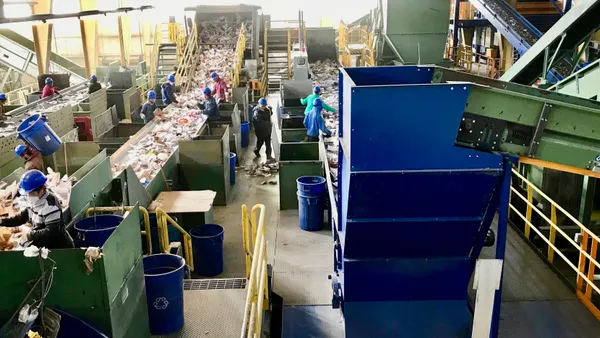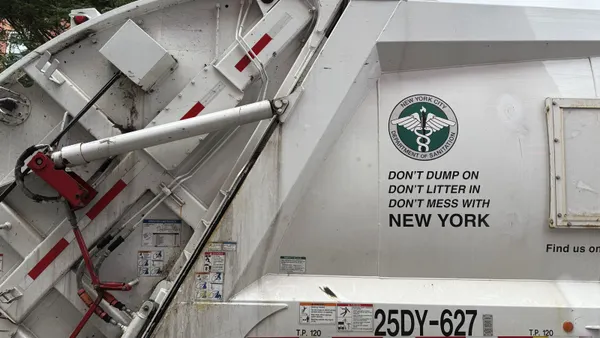Dive Brief:
- Officials in Anglesey, Wales have rolled out new rules that will require customers to show a birth certificate and prove their child is 3 years old or younger in order for waste management workers to collect dirty diapers bi-weekly, according to The Guardian. If they cannot provide this proof, they will need to dispose of diapers with the household waste every three weeks.
- The new rules were introduced with the intentions of cutting waste, increasing recycling and reducing fines from the Welsh government. A council spokesperson told The Guardian that Anglesey officials have "evidence" that suggests children should be done potty training by the time they are 3 years old.
- Residents of Anglesey have expressed frustration with the new rules, stating that using a blanket rule for all children is unfair, and the current system of bi-weekly collection is just enough for some parents to get by.
Dive Insight:
While the isle had been offering special "fortnightly nappy collection" until this point, Anglesey has been feeling pressure to cut back on waste — and this seemed to be the correct solution for officials. A similar concern was expressed in San Francisco with the amount of dog waste and associated plastic bags headed to the landfill each year (an estimated 32 million tons), however the option for compostable dog bags was decided as an easy solution. While compostable diapers are available on the market, their popularity and price may not be compelling enough to lean on them as an alternative to landfilling.
Diaper waste has proven to be a challenge in the United States before, with cities like San Antonio, TX launching educational campaigns to teach residents about the best disposal options for such waste. In San Antonio, it was made clear that diapers are garbage and not recycling. However as cities work toward zero waste, it will be important for industry professionals to consider other disposal options for dirty diapers in order to keep both consumers and waste officials content.
While some Anglesey residents were concerned that the ruling was unfair for families of special needs children, a council official told the BBC that parents of such children with medical conditions who are over three can apply to use a separate disposal service.









